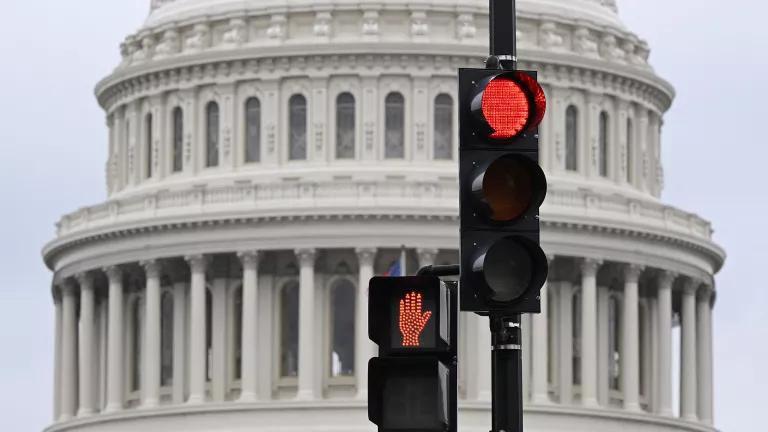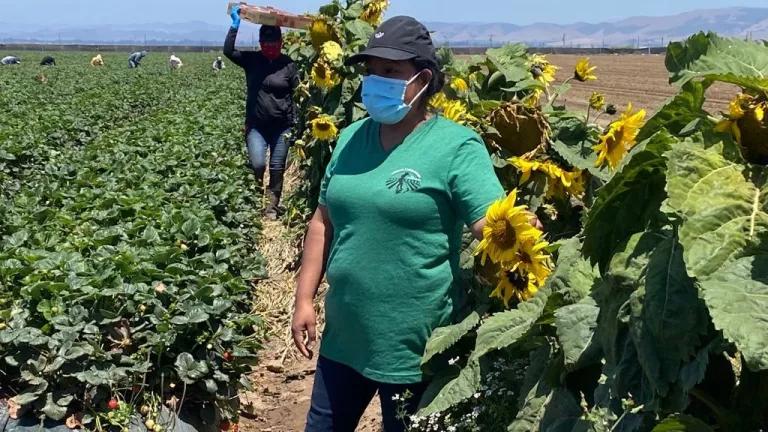Sunset Rule Threatens Thousands of Public Health Protections
The Trump administration closed out its four years of attacks on the environment with a raft of last-minute rollbacks. Yet one of the most sweeping and dangerous midnight rules of the Trump administration has largely escaped public notice. The Department of Health and Human Services’ “Sunset Rule” adds a termination date to the vast majority of the HHS’s existing 18,000 regulations. Each of those rules will automatically terminate, starting in five years, unless HHS conducts a time-consuming assessment of the rule before its new expiration date. Unless it is rescinded, the Sunset Rule could cause enormous damage.
Consider what is at stake. HHS rules govern dozens of matters that are central to public health, including food safety plans and recalls, the quality of bottled water, adulteration of infant formula, pasteurization of milk, chemicals in food packaging, efforts to prevent antibiotic resistance, sanitation on airplanes and ships, quarantines to restrict the spread of communicable diseases, minimum hygienic practices for growing and packing produce, Medicaid benefits, and on and on. The Sunset Rule plants a time-bomb in nearly every one of these rules.
Disarming these time-bombs—and preventing the mass expiration of thousands of rules that protect public health and provide critical guidance to regulated entities—will require a major diversion of HHS resources. To preserve its existing rules, HHS must now assess each one to see if it has a “significant economic impact on a substantial number of small entities,” like small businesses. If it does, HHS must re-evaluate the rule to decide whether it is still necessary and justified. If HHS fails to take those steps in time, the rule is immediately rescinded, with no further process or even public notice.
Under the Sunset Rule, HHS will need to assess nearly 2,500 of its rules every year for the next 5 years, just to keep its existing rules on the books. That’s almost certainly impossible to do. Even if HHS could assess thousands of rules every year, it would be a serious distraction that pulls resources away from critical work in the middle of a pandemic. And because the Sunset Rule was published on the prior administration’s last full day in office, it saddles the incoming administration with this enormous burden.
It’s admirable for agencies to identify rules that may affect small entities, and then re-evaluate them to make sure they’re still justified. But the Sunset Rule creates a penalty for failing to do so that could be catastrophic.
The claimed justification is that the Sunset Rule will “incentivize” HHS to re-evaluate some of its rules—those with a significant economic impact on a substantial number of small entities—to make sure those rules are still needed. But there is a mismatch between that goal and what the Sunset Rule does: terminate almost every HHS rule, not just those that affect small entities, unless each rule is rescued later on a case-by-case basis. There are other, less extreme ways to incentivize these assessments.
Not only that, but the Sunset Rule won’t create the intended incentive. An incentive works because the penalty for not meeting it falls on the person with the capacity to meet the incentive or not. But an incentive isn’t an incentive at all if the penalty for not meeting it falls on a third party. That’s the case here. If HHS can’t act in time to save its rules, the Department itself won’t necessarily suffer. But the public will be harmed, perhaps grievously—parents who feed their infants formula regulated by HHS rules; people who eat food protected against contamination and adulteration by HHS rules; and everyone who benefits from the thousands of other health and safety protections imposed by HHS rules.
The prior administration was well aware of the Sunset Rule’s sweeping, unprecedented nature. In a recent op-ed touting the rule, the departing HHS chief of staff wrote “we have delivered one of the most significant regulatory reform efforts in the history of the federal government.” If the Sunset Rule is not repealed soon, it may prove to be one of the most unwise and harmful rulemakings in history. The rule has been criticized by public health advocates and industry representatives alike: Groups ranging from the U.S. Chamber of Commerce, to the American Academy of Pediatrics, to Planned Parenthood Federation of America, to the AARP all filed comments opposing the rule for its recklessness and sweeping breadth.
The Sunset Rule is dangerous and unnecessary. The Biden-Harris administration should rescind it as soon as possible.




